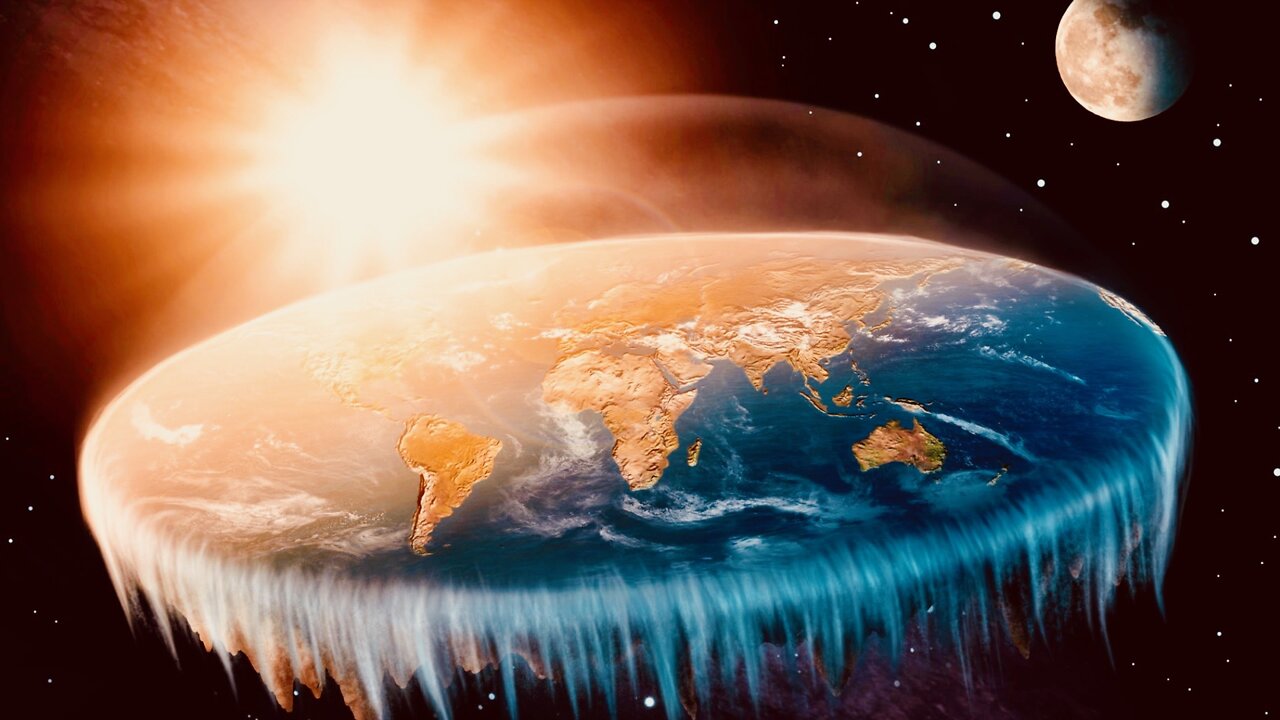Premium Only Content

How A Flat Earth Would Effect Gravity - Interesting Animation
The Earth is a round orb, almost 6400km in radius, orbiting a star alongside some other orbs of varying sizes. We've taken pictures of it. But some folks don't believe any evidence presented to them by a government agency. Many have come to the conclusion that the Earth is actually flat. What does flat mean? The models I've seen posit that the Earth is a disk with the North Pole in the center, bounded by Antarctica at the edges. What would happen if the Earth really did become flat? The following are opinions on weather by climate researchers, seismologists, astronomers and physicists to consider our planet suddenly turning to a pancake. The answer is, pretty universally, certain death.
Susan Hough, seismologist at the United States Geological Survey and Author....
If the earth were to suddenly flatten, presumably all sorts of hell would break loose. I guess it would depend on how flat is flat. If we're talking pancake flat, gravity would be an immediate problem: gravitational attraction goes as G(m1*m2)/r^2, where G is the gravitational constant, m1 & m2 are two masses, and r is distance. A sphere is the 3D shape that maximizes surface area relative to volume, which kind of gives gravity the biggest bang for its buck. If you flatten the sphere, the far side gets closer to the new center point, but the ends spread way out, so surface gravity goes down at the center, and way down at the edges. Lose gravity and bye-bye atmosphere.
Other first-order problems: heat, radioactivity, etc. In our spherical earth, both of these are concentrated in the core. If the earth were flattened, they would have to go somewhere -- presumably a lot closer to the surface.
Marek Kukula
Public Astronomer at the Royal Observatory in London
The Earth is round because its own gravity inevitably pulls it into a spherical shape. To somehow make it go flat and stay flat, you'd first have to find a way to switch off the effects of gravity. This would have the unfortunate side effect of allowing the Earth's atmosphere to float away into space, rapidly followed by anything else not physically attached to the surface. So, unfortunately, there'd be no weather and no life.
Carol Finn
Research Geophysicist at the US Geological Survey, and Past President of the American Geophysical Union
1) Gravity: in the center of the flattened Earth, it probably would feel similar to now. At the edges, the gravity field would start to point slightly toward the center, making it increasingly difficult to move toward the edge. It might feel like you are going up an increasingly steep hill. Once you hit the edge, you could walk more easily on the side of the Earth disk, as you'd be pulled toward the center of the Earth again (might feel like now). If there was a bottom side (occupied by the 80% water and parts of South America and Africa, as well as Australia, New Zealand, etc.) you'd be pulled toward the center (walking down a steep slope) once you got off the side of the disk. Because of the large mass of even a flat disk, I doubt someone would fall off the edge into space. I don't know what the Flat Earthers think lies under the Flat Earth disk, if all of the current Earth were on one side.
2) Everyone would see the same stars over a 24 hour period.
3) On clear days, you would see forever -- you wouldn't for example, see the bottom of a boat disappear before its top from the horizon as it does now because of Earth's curvature because there would be no curvature.
4) If Earth were totally flattened, there would be no plate tectonics as we know it today, because that requires large (1000s of km) of convection cells in the mantle, so I imagine those would stop moving. So that means that it is unlikely that new mountains like the Rockies would be formed nor would deep trenches in the ocean. But even without mantle convection generating heat, the core radioactive heat sources would be close to the surface so could make it very hot with possibilities for lots of volcanism until the radioactive core stopped generating heat. This would be like current day Mars and Venus. The oceans might boil away. We'd probably be dead.
5) Depending on the thickness of Earth there probably would not be a magnetic field because it requires two poles and a flat disk would only allow one pole. Without the magnetic field the solar wind would strip away the ozone layer that protects us from harmful ultraviolet radiation and we'd be dead.
6) Lots of volcanism would cool the climate. All air currents like the jet stream and ocean currents like the Gulf Stream would change which would drastically change the weather. I just don't know how -- better to ask a meteorologist or person studying climate, ocean currents, etc.
Music: Bottom of the Sea (Instrumental Version) by Dhruva Aliman
Amazon- https://amzn.to/3dgKA52
https://music.apple.com/us/artist/dhruva-aliman/363563637
https://dhruvaaliman.bandcamp.com/album/hard-to-get-along
http://www.dhruvaaliman.com/
Spotify - https://open.spotify.com/artist/5XiFCr9iBKE6Cupltgnlet
#flatearth
#physics
#hypothetical
-
 52:31
52:31
Seeker Land
1 month agoMystery of the 3,000 Year Old Girl from Egtved Denmark - Life in the Bronze Age
188 -
 25:09
25:09
BlackDiamondGunsandGear
6 hours agoYou NEED to be Training For Whats to Come
23.5K8 -
 20:03
20:03
Sideserf Cake Studio
12 hours ago $1.26 earnedA HUNGRY HUNGRY HIPPOS CAKE THAT ACTUALLY WORKS?
26.3K9 -
 23:51
23:51
marcushouse
13 hours ago $0.89 earnedStarship’s Next Move Is Coming Sooner Than You Think!
17.5K2 -
 22:24
22:24
The Finance Hub
19 hours ago $5.87 earnedBREAKING: JOE ROGAN JUST DROPPED A MASSIVE BOMBSHELL!!!
20.7K19 -
 55:02
55:02
PMG
8 hours ago $0.54 earnedHannah Faulkner and Miriam Shaw | Moms on A Mission
13.6K -
 1:21:05
1:21:05
I_Came_With_Fire_Podcast
20 hours ago"Veteran Health, Military Culture, and American Exceptionalism" with Matt Kenney
86.1K18 -
 23:21
23:21
Simply Bitcoin
1 day ago $36.62 earned$1M Bitcoin in 2025? | Trump's Plan to End the Fed Revealed!
177K68 -
 17:19
17:19
SLS - Street League Skateboarding
17 days agoTop Moments from the Men’s Super Crown Final! Nyjah Huston, Giovanni Vianna and Gustavo Ribeiro 👑
98.6K -
 LIVE
LIVE
Major League Fishing
3 days agoLIVE! - Bass Pro Tour: Stage 1 - Day 3
195 watching